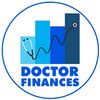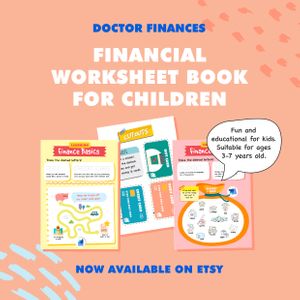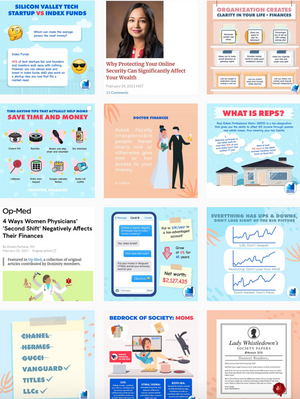Welcome back to the second part of handling your personal finances.
To help you see the big picture and reach your goal, whether it’s being ready should a disability happen, pay down debt or if you are looking to reach financial independence, there are three things you want to consider.

1. Look at your income and expenses.
What is the amount of income coming in and how is the income leaving per month? You need to know the exact numbers because that is a key to personal finance success. This may be quick, or it may take some time. If you are not sure how the income is leaving, you need to pinpoint this exactly by looking at your credit card statements, rent/mortgage bills, etc., and/or use software such as Mint,YNAB, or Personal Capital to help you understand and get the exact numbers. [This may take some time, and you can come back to this list later].
2. Go through your expenses: Make sure they all make sense and that you are only buying the things you need.
If you find things that are non-essential, cut them out—whether it’s cable TV you are not watching, a gym membership you are not using, and/or too much eating out (we were guilty of this). Remember, paying off a credit card bill isn’t a needed expense; you have to dissect exactly what you are charging and what needs to be cut out. I will discuss how to further cut down on expenses in future posts.
Once you’re in a place of only spending your money on necessary expenses, you can start saving/investing. If you don’t have any amount left for savings, you have to determine how to increase your income by adding side hustles, or in some cases, you might need to wait until you are done with your education (like medical/dental/nursing school) to start maximizing accounts.
3. Pay off all high interest debt (this is usually credit card debt).
This needs to be your main focus, and it has to be done before anything else. Credit cards are fine to have to build credit and to use in lieu of cash, but they must be paid in full each month to avoid costly interest charges (using automatic payments is helpful and less tedious). If you are unable to resist the temptation of unnecessary credit card charges, then don’t use those credit cards and go cash-only (this is a big Dave Ramsey concept).
Student loans can also be handled at this time. If you are part of a Public Service Loan Forgiveness program and feel it’s the best decision for you, stay the course. If not, the best thing to do is to consolidate and refinance your student loans to the lowest rate possible. There are great options available from banks such as SoFI, Laurel Road, First Republic Bank, which provides rates as low as 1.95% (this is where I refinanced my medical school loans), and more. For me, refinancing my loans was the first step in my financial empowerment path.
Personal finance can seem overwhelming at first (after all, we are all trying to unlearn what was marketed to us, or what was never taught to us) , but as you can see once you break it down to smaller chunks, it's much more manageable and even fun.
Read the last part, Part 3, of the personal finance management journey here :).





